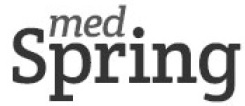As highlighted by the existing literature and documented in several workshops and events, the way to observe and monitor EU-Med cooperation as well as trends in the selected societal challenges is still fragmented. Existing Euro-Mediterranean observatories are established (or in the process of being established) as independent entities with little inter-alignment and linkages, giving rise to the need to support cooperation of different monitoring initiatives undertaken by relevant Euro-Mediterranean observatories and national observatories.
MIRA already started the process of integration (example: supporting the establishment of the Euro-Mediterranean Metric Observatory, the Observatory of EU-MPC cooperation on S&T, the involvement of CIHEAM Euro-Mediterranean Observatory on Agriculture in the MIRA monitoring activities). The project will support dialogue, synergies, valorise complementarities and establish links among different relevant observatories, allowing monitoring of relevant indicators and elaboration of trends and scenarios to support RTD policies in the selected societal challenges.
Working in line with other parts of the project, the following tasks will be implemented:
- Identification of Euro-Mediterranean thematic observatories relevant to policy and cooperation monitoring and monitoring of trends and indicators in relation to selected societal challenges. Some Euro-Mediterranean observatories have already been identified :
- Euro-Mediterranean observatory on agriculture supported by CIHEAM,
- The new coming observatory foreseen within the International Network for Research and Innovation on Food Security / Feeding Knowledge supported by the Italian government;
- Euro-Mediterranean Observatory on Sustainable Development (OREM),
- Mediterranean Energy Observatory,
- Plan Blue - environmental observatory.
- Observatory of EU-MPC Cooperation in S&T .
- Other similar Thematic Observatories are known to exist in Lebanon, Tunisia, Egypt, Morocco.
- Networking to establish relations with existing Euro-Mediterranean observatories and analysis of their objectives, functionality and potentials. Setting formal agreements for cooperation and establishment of collaborative links with suitable observatories. Two Observatories Networking Meetings are foreseen. The group (representatives of EU-MED Observatories and chaired by the CNRS & IRD) will define rules of collaboration and information share and use towards mutual benefits with the aim of enhancing exchange and best practices. The task remains open to further integrated observatories for the project duration and beyond.
- Creation of a digital portal of EU-MED Observatories. The portal will include: brief descriptions of the observatories, their aims/objectives, fields of work, collaborating regions (as defined within the formal agreements for cooperation) and information on monitoring indicators in relation to policy, cooperation and trends in the selected societal challenges, linking and enhancing the observatory of EU-Med Cooperation established under MIRA.
- Thematic, regional and multi-disciplinary linkages will be developed and consolidated among observatories to enhance synergies, complementarities and challenges, and objectives of existing observatories. A common list of monitoring indicators will be discussed and agreed among the observatories to strengthen collaboration towards feeding national/and regional observatory capacities, including identification of training needs. Two meetings are foreseen to strengthen collaboration among observatories. One ad-hoc training event is foreseen and targeted to national observatories in collaboration with WP7.
- Trend and scenarios will be elaborated, on the base of the observatories outputs, to support bi-regional policy (including governance and institution) with particular regards to policy, cooperation and trends within the Societal Challenges identified: Food Security and Safety, Environment (Natural Resources and Natural Disaster management), Energy. Two ad-hoc reports and fact sheets (including trends of indicators and scenarios) will be elaborated for policy dialogue. Qualified expertise will be subcontracted for this task.



